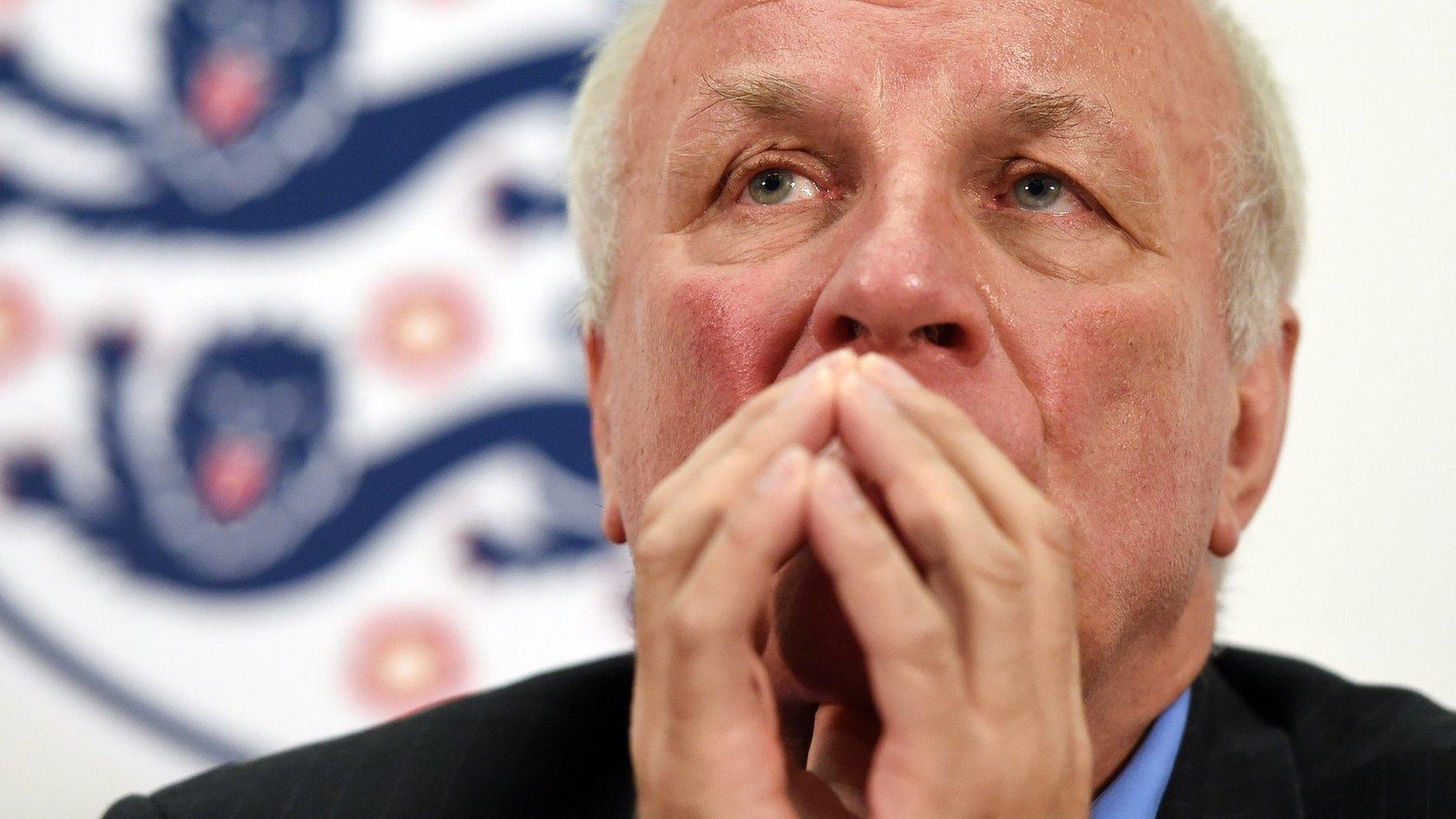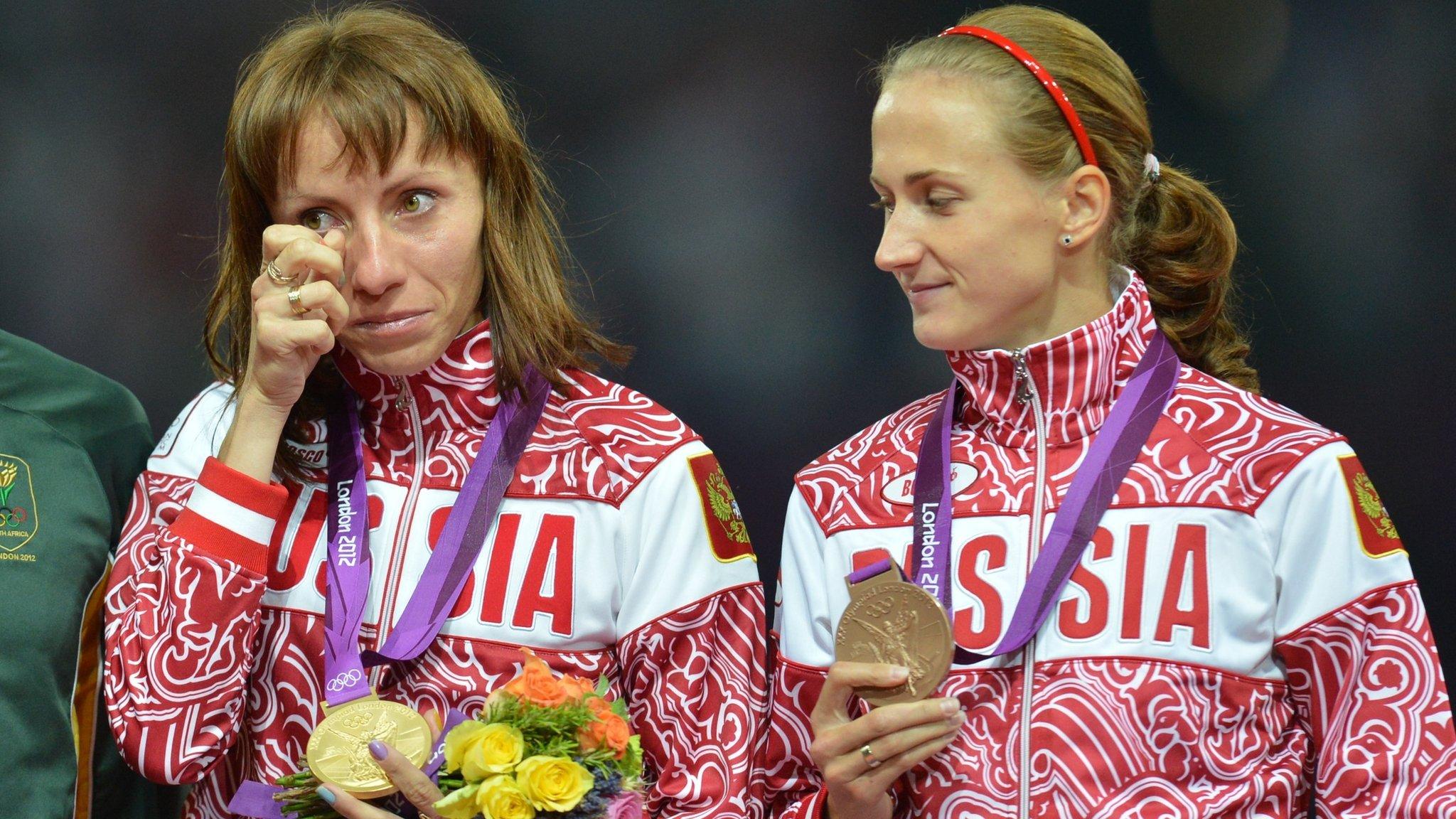UK anti-doping system worse than Russia's, says minister
- Published
Russia doping crisis in 60 seconds
Russian sports minister Vitaly Mutko has said Britain's anti-doping system is "even worse" than Russia's.
A World Anti-Doping Agency commission report accused Russia, external of "state-sponsored" doping and of contributing to the "sabotaging" of London 2012.
Mutko said: "We're hearing that medals won by our athletes in London must be taken away. But it's the British system of doping control that operated there."
The Department for Culture, Media and Sport said the system was "robust".
A spokesperson added: "It is highly valued by Britain's sports governing bodies and our clean athletes."
Mutko told Russian news agency Interfax the British system had "zero value".
Referring to the 2012 Olympics, he added: "It was Britain's anti-doping organisation under the leadership of the International Olympic Committee.
"Each medal winner was tested for doping and received their medal only after having tested negative."
Russian doping 'worse than thought'
The Wada independent commission chairman Dick Pound said the All-Russia Athletics Federation (Araf) should be banned from international competition when he made his address on Monday to accompany the publication of the report.
Araf has been told to respond by Friday, when the IAAF council will decide whether to suspend Russia from international competition. It could also strip the country of future events, including the World Junior Championships due to be held in Kazan in July 2016.
Mikhail Butov, the general secretary of the country's athletics federation, said on Wednesday that Russian athletics knows it has a "problem with doping", but an Olympic ban would punish its clean athletes.
He told the BBC the claims were "not new for everybody", but said work was under way to "change the mentality of coaches in the regions", adding that "isolation of any federation is not a good way".
"We know our problem. We now have a problem with doping," said Butov on Newsnight., external "We should be against any limitation of participation at the highest level of competitions. We are sure we have absolutely clean athletes."
He added suspension would be "against our team and the clean athletes, but not problem athletes".
Russia could be suspended - Coe
Mutko echoed Butov's sentiments, saying the option to ban the country's track and field athletes from major competition exists because some would "benefit from removing a direct competitor" and others from "soiling the country's image".
Meanwhile, the head of the Russian doping laboratory accused by the Wada report of destroying more than 1,400 blood and urine samples, has left his position.
The laboratory has had its accreditation suspended.
Elsewhere, the chief of the United States Anti-Doping Agency does not believe Russia's athletics team should be allowed to compete at Rio 2016.
"It's been shown through the report that the Olympic dream and the Olympic values, including fair play, have been reduced down to a nightmare by the Russian Athletic Federation," Travis Tygart told BBC Radio 5 live.
Tygart, who banned disgraced rider Lance Armstrong from cycling for life,, external said: "Athletes that are clean are upset and angry and will revolt against anything less than a full accountability of all those involved."
The 323-page Wada commission report said "acceptance of cheating at all levels is widespread" in Russia and suggested that neither Araf, nor Russia's anti-doping agency, nor the Russian Federation can be considered anti-doping code-compliant.
The report also said the London 2012 Olympics were "sabotaged" by "widespread inaction" against athletes with suspicious doping profiles; accuses Moscow laboratory director Grigory Rodchenkov of asking for and accepting bribes and intentionally destroying samples he was told to keep; and recommends that five Russian athletes and five coaches should be given lifetime doping bans.
These allegations are unproven and the athletes are yet to respond to the report's findings.
- Published11 November 2015

- Published11 November 2015

- Published10 November 2015